
BBC Sherlock Fan Forum - Serving Sherlockians since February 2012.
- SolarSystem
- Threatened Knighthood
 Offline
Offline - From: Germany
- Registered: July 30, 2013
- Posts: 10,650
Re: The theory he told Anderson - The actual answer??
Sherlock Holmes wrote:
But but but...they can't leave it like that. They have to actually tell us at some point. It would be a really big cop out and a cheat if they didn't.
I totally agree. I don't even want the explanation to be complicated or absurdly clever, I'd be totally happy if the explanation Sherlock gives to Anderson is indeed THE explanation. But I really want it to be crystal-clear what the explanation really is.
I'm pretty sure the first two explanations presented in the episode are utter nonsense - and I love they way in which they were presented, don't get me wrong. But they are just... out of the question.
So, they have to give us a definite answer. Anything else would be a huge disappointment for me.
___________________________________________________
"Am I the current King of England?
"I see no shame in having an unhealthy obsession with something." - David Tennant
"We did observe." - David Tennant in "Richard II"
- Sherlock Holmes
- Administrator
 Offline
Offline 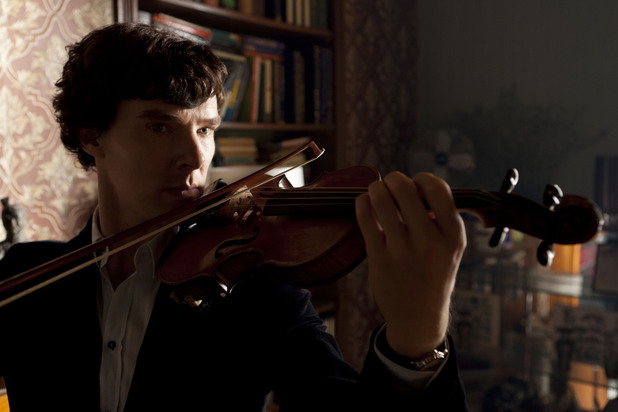
- From: 221B Baker Street
- Registered: February 7, 2012
- Posts: 5,162
Re: The theory he told Anderson - The actual answer??
SolarSystem wrote:
Sherlock Holmes wrote:
But but but...they can't leave it like that. They have to actually tell us at some point. It would be a really big cop out and a cheat if they didn't.
I totally agree. I don't even want the explanation to be complicated or absurdly clever, I'd be totally happy if the explanation Sherlock gives to Anderson is indeed THE explanation. But I really want it to be crystal-clear what the explanation really is.
I'm pretty sure the first two explanations presented in the episode are utter nonsense - and I love they way in which they were presented, don't get me wrong. But they are just... out of the question.
So, they have to give us a definite answer. Anything else would be a huge disappointment for me.
^^^ Thank you. And it would be terrible writing. And I don't think these guys are terrible writers by a long stretch of the imagination.
---------------------------------------------------------------------------------------------------------------------------------------------
Eventually everyone will support Johnlock.
Independent OSAJ Affiliate

- •
- Azelma
- Homeless Network
 Offline
Offline 
- Registered: December 17, 2012
- Posts: 19
Re: The theory he told Anderson - The actual answer??
To be honest, I was initially under the impression that the whole thing was a hallucination what with Sherlock's dissapearance being so... sudden. I'm still not for sure. But is anyone, really? I just hope Anderson doesn't completely lose it.
-------------------------------------------------------------
"Listen - what I said before, John? I meant it. I don't have friends. I've just got one."
- SilverMoonDragonB
- High Functioning Sociopath
 Offline
Offline 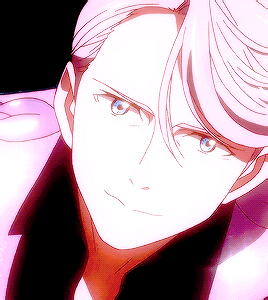
- From: Ontario, Canada
- Registered: May 21, 2013
- Posts: 3,228
Re: The theory he told Anderson - The actual answer??
kittykat wrote:
*can't stop giggling over the SherlockxMoriarty theory* XD
Same ![]()
-------------------------------------------------------
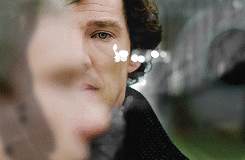
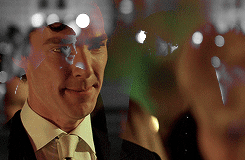
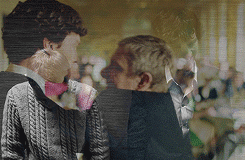
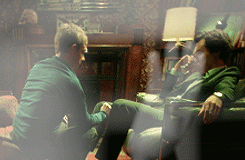
- sj4iy
- High Functioning Sociopath
 Offline
Offline 
- From: USA
- Registered: June 12, 2013
- Posts: 2,692
Re: The theory he told Anderson - The actual answer??
I think he was telling the truth to Anderson, because I can't see any reason why he would lie to him. Sherlock has said that he likes showing off. I liked how he had come up with many contingency plans and had code names for them all. I felt like that was the 'elegant' part of it.
Last edited by sj4iy (January 2, 2014 6:30 am)
__________________________________________________________________Bigby: Will you shut up?
Colin: Well, maybe if my throat wasn’t so parched, I wouldn’t have to keep talking.
Bigby: Wait, that doesn’t make se-
Coline: Just give me a drink, please.
- Wholocked
- Moderator
 Offline
Offline 
- From: Australia
- Registered: March 7, 2012
- Posts: 1,811
Re: The theory he told Anderson - The actual answer??
I'm hoping we'll get an actual explanation in subsequent episodes but I don't think we will.
I was poking holes in Anderson's theory even while I was watching it (mostly centred around the fact that it wasn't John he was faking his death to, it was the snipers so what John could/could not see wasn't really relevant and the fact that anyone else around would have seen the air bag etc....) so I'll be disappointed if that is the answer.
However, I think they'll just leave it open.
-------------------------------------------------------------------------------------------------------------
I dislike being outnumbered. It makes for too much stupid in the room
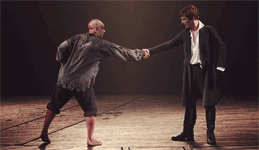
- CarlPowers
- John's Army
 Offline
Offline 
- From: Los Angeles
- Registered: May 17, 2012
- Posts: 339
Re: The theory he told Anderson - The actual answer??
until (if) he actually ever explains it to John, we may not get the whole picture.
but then, John is more interested in the why , not the how.
- Jacco111
- John's Army
 Offline
Offline 
- Registered: January 19, 2013
- Posts: 308
Re: The theory he told Anderson - The actual answer??
We did not really hear the why either. Why did he tell his parents, and not John? Or did he really think John would crack?
-------------------------------------------------------------------------------------------------------------
"The world is big enough for us, no ghosts need apply"
- Be
- Unregistered
Re: The theory he told Anderson - The actual answer??
I think the theory Sherlock presented to Anderson is another wrong theory.
The blue airbag is silly and ridiculous. Mofftiss said that the clues were there. But no clue that hints towards a blue airbag. That would be cheating like pulling a rabbit out of a stovepipe hat. And if I understood correctly (which was not always possible because Sherlock talked much too fast) he said he didn't know that Moriarty was suicidal. That's a lie. And we are still missing the important answer to the question: What are they talking about on the roof? The whole construction needs an explanation. What happend eye-to-eye in the last moment and what triggered Moriarty to kill himself? In one moment Sherlock got the upper hand and nothing about all this is explained (yet). This beautiful scene on the roof between them needs an explanation.
Why would Sherlock tell Anderson of all people?
- CarlPowers
- John's Army
 Offline
Offline 
- From: Los Angeles
- Registered: May 17, 2012
- Posts: 339
Re: The theory he told Anderson - The actual answer??
Yeah whether it's the 'why' or the 'how', if I were John I 'd think I deserve some explaining.
- anjaH_alias
- Mycroft's Contact
 Offline
Offline - Registered: November 13, 2012
- Posts: 434
Re: The theory he told Anderson - The actual answer??
I don´t understand why so many are still doubting - I am sure the explanation to Anderson was the right one! At least it works perfectly with my theories ![]() . Whether it was Anderson fantasizing again and finally getting it right or not, doesn´t matter. Moffat/Gatiss play the whole episode with the expectations of the fans (and destroy them or show them even as utter nonsense
. Whether it was Anderson fantasizing again and finally getting it right or not, doesn´t matter. Moffat/Gatiss play the whole episode with the expectations of the fans (and destroy them or show them even as utter nonsense ![]() ), so of course they won´t have a sentimental explanation to John (like everybody has more or less expected). They do it this way, funny, a bit mysterious, elegant. Everything fits, is simple and clever, and of course, as Sherlock says, also a bit disappointing after two years of theorizing. The clue, which "everybody missed" (don´t forget: that was said just some days after the first airing of TRF!), was of course that everything belonging to TRF was plannned in advance by Mycroft and Sherlock and not "just happening" to him. Also this is explained in the new episode.
), so of course they won´t have a sentimental explanation to John (like everybody has more or less expected). They do it this way, funny, a bit mysterious, elegant. Everything fits, is simple and clever, and of course, as Sherlock says, also a bit disappointing after two years of theorizing. The clue, which "everybody missed" (don´t forget: that was said just some days after the first airing of TRF!), was of course that everything belonging to TRF was plannned in advance by Mycroft and Sherlock and not "just happening" to him. Also this is explained in the new episode.
I doubt that we will get more or other explanations in future, everything is said imo.
Last edited by anjaH_alias (January 2, 2014 9:40 am)
- anjaH_alias
- Mycroft's Contact
 Offline
Offline - Registered: November 13, 2012
- Posts: 434
Re: The theory he told Anderson - The actual answer??
Okay, I didn´t know that. I was always convinced that in the first days after TRF everybody was theorizing about the pure fall itself, how it worked and how Sherlock has survived it, but not about the story behind. When I watched TRF for the second time (long, long ago ![]() ) with the long planned version and Mycroft as confident in my mind it made a total different film then. And I am convinced this was meant with the clue. They must have missed it when it was really written before Moffat gave the hint.
) with the long planned version and Mycroft as confident in my mind it made a total different film then. And I am convinced this was meant with the clue. They must have missed it when it was really written before Moffat gave the hint.
- mujie
- Homeless Network
 Offline
Offline - Registered: January 2, 2014
- Posts: 18
Re: The theory he told Anderson - The actual answer??
No. I don't think what Sherlock told Phillip was true. You know Sherlock. I'd think he'd always take the simplest option out. Mycroft just used his power to get rid of John's sniper? Why wouldn't he do that for the others as well? It would have saved a lot of trouble. A Sherlock corpse that was replaced by the real Sherlock? First, there was no blood on the corpse, and if Sherlock had the "window-dressing" done on him while he was lying down, he could've just started off there. And in that case, why not just use the corpse. Sherlock wouldn't overcomplicate things, would he? But wait, if he did just want it to be more complicated, Molly still wasn't a key part as the corpse wasn't needed.
In fact, I'm questioning whether that encounter was real or not. I've been trying to figure out when it happened. And it's almost impossible that it happened before Sherlock and John were with the bomb. Sherlock knew it was a plot to blow up parliament, he said so himself, by which time, he had figured most of it out. Sherlock would waste no time. So if that were the case, why would Sherlock visit Anderson of all people. So that leaves 3 possibilities as I see it:
A) It's not real
B) It took place after the events on the train
C) The scene is more important than we think
Last edited by mujie (January 2, 2014 12:55 pm)
- Sherlock Holmes
- Administrator
 Offline
Offline 
- From: 221B Baker Street
- Registered: February 7, 2012
- Posts: 5,162
Re: The theory he told Anderson - The actual answer??
Having thought about this more overnight, I'm convinced that the entire scene with Anderson was lies.
The most obvious clue in all this, is the fact that Sherlock CALLS ANDERSON BY HIS FIRST NAME.
WHY ON EARTH WOULD HE DO THAT? He can't even remember Lestrade's first name, someone he's worked with for many years and whom he has a certain amount of respect for. He's always, always, called him Anderson. Why would that suddenly change now? I think it's more like Anderson's personal fantasy that Sherlock would call him by his first name because now he's Sherlock's number one fanboy.
Then there was the fact that Sherlock basically just disappeared and it was a bit of a weird jump cut that looked like funny editing - or on purpose editing.
Then there was the fact that the entire scene was just stuck rather awkwardly in between the middle of the dramatic train scene.
The whole thing made NO SENSE.
Why would Sherlock go to Anderson? Why would he sit and be recorded for an interview for his ridiculous, idiotic fan club group by a man he spent his entire time with Scotland Yard deriding and making fun of? WHY? Why would he tell Anderson and not John?
This is Anderson's fantasy.
Anderson would love to be able to turn around and tell Sherlock Holmes that how he did it wasn't particularly clever or exciting.
---------------------------------------------------------------------------------------------------------------------------------------------
Eventually everyone will support Johnlock.
Independent OSAJ Affiliate

- •
- SusiGo
- The game is never over (moderator)
 Offline
Offline 
- From: Germany
- Registered: June 5, 2012
- Posts: 22,969
Re: The theory he told Anderson - The actual answer??
There is another strange thing about the Anderson scene - Sherlock knows his first name whereas he mixes up Graham and Greg when meeting Lestrade. So why should he know Anderson's of all people? And why would he let Anderson film this interview?
------------------------------
"To fake the death of one sibling may be regarded as a misfortune; to fake the death of both looks like carelessness." Oscar Wilde about Mycroft Holmes
"It is what it is says love." (Erich Fried)
“Enjoy the journey of life and not just the endgame. I’m also a great believer in treating others as you would like to be treated.” (Benedict Cumberbatch)

- gently69
- One More Miracle
 Offline
Offline 
- From: Germany
- Registered: November 18, 2013
- Posts: 6,646
Re: The theory he told Anderson - The actual answer??
So... after reading all your posts... we still don't know how it was done then??? *confused*
-----------------------------------------------------------------------------------------------------------------------------------------------------------------------------------------------------
Ten:" I'm burning up a sun just to say goodbye."
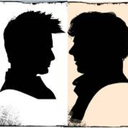
Sherlock: "I heard you.”
"Temptation coursing through our veins "
(Tony Hadley)
- anjaH_alias
- Mycroft's Contact
 Offline
Offline - Registered: November 13, 2012
- Posts: 434
Re: The theory he told Anderson - The actual answer??
I also don´t think that Sherlock was really at Anderson´s flat. But I think Anderson, in his obsession, nailed it finally (like he nailed that Sherlock´s still alive, like several of the fandom more or less nailed it in their theories after some time). And this was the (funny, elegant, extraordinary) way to tell us how Sherlock survived the fall. Through the eyes of his former favourite victim, who´s confused and full of shame. Better than doing it how everybody expects it to be, e.g. through a long and maybe sentimental explanation to John.
Last edited by anjaH_alias (January 2, 2014 1:02 pm)
- anjaH_alias
- Mycroft's Contact
 Offline
Offline - Registered: November 13, 2012
- Posts: 434
Re: The theory he told Anderson - The actual answer??
And, btw, the discussion now - do we know or not - is obviously also appreciated by the authors. The more I think about it the better I find it ![]() .
.
- anjaH_alias
- Mycroft's Contact
 Offline
Offline - Registered: November 13, 2012
- Posts: 434
Re: The theory he told Anderson - The actual answer??
Swanpride wrote:
I think they did the part with the courpse mostly as an explanation why we did see "Sherlock" landing on the pavement in TRF.
And Sherlock is talking to Anderson mostly because he was the one who staged the Ripper Case. The scene in itself worked just fine. But yes, it was placed very awkwardly into the episode. Especially since it apparently happened after Sherlock solved the bomb-case.
It was placed at a time when John and maybe also Sherlock thought they had to die. Time for the truth imo.
- shylock
- Homeless Network
 Offline
Offline - Registered: January 1, 2014
- Posts: 39
Re: The theory he told Anderson - The actual answer??
Has anybody yet looked at, or better still screen cap'd, the actors at the 'fan-club' meeting and the 'accomplices' at the final theory?
I'm still certain that the 'love trist' theory girl was key in the air-bag scene and there could have been others.
I know 'extras' are 'multi-use' but I don't think Moffat would make a mistake like that.

